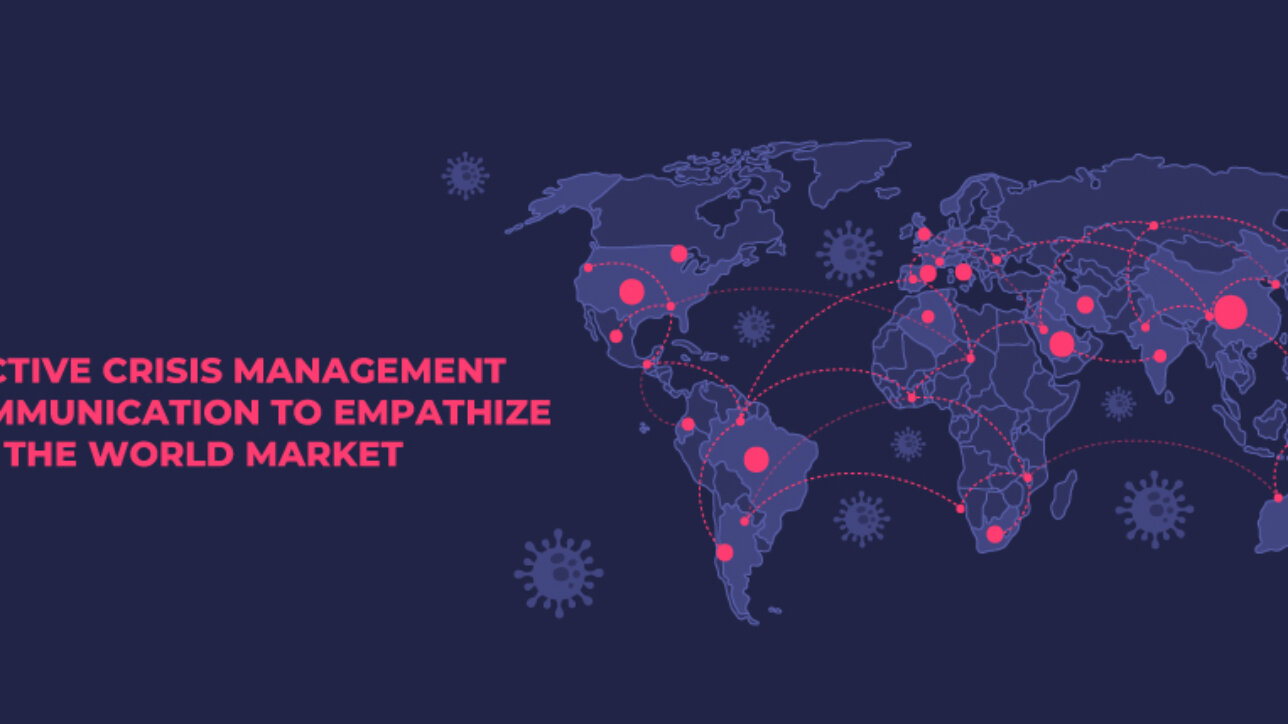COVID-19 is like an ancient plague brought upon us. It originated from China but the adverse effect is not only extreme in China, the epicenter of the epidemic, but the entire globe is planning for a recession.
Owing to the widespread dissemination of the virus by physical contact, all the countries have suffered a major disruption in their domestic and economic activities.
Enterprises are working hard to stay unhindered as the ongoing lockdown across the globe takes its toll and are shifting their marketing strategy to remote digital marketing and remote social media marketing.
A CIO survey has seen sales bear the brunt of the impact. Production has now outperformed the supply chain as the second hit hardest, whereas IT and finance are the least affected.
.png)
The hospitality industry is facing the same downward trend. In fact, this could be among the pandemic’s hardest hits. Players in this sector have been doing their utmost to ensure their users are secure.
Events across the globe are being canceled and postponed to avoid the spread of the novel coronavirus.
It caused a shift in the way corporations to handle events.
Companies have transformed their in-person activities into digital events that people would be able to access from their devices when they are working from home.
When the shutdown and COVID-19 have seriously affected companies, they are planning for a recession and could face some daunting long-term decisions. This is an ongoing situation with no clear definite future.
The economic recovery is expected to be gradual and inconsistent after the health crisis is over because much of the informal sector will not be able to rebuild their enterprises and the unemployment rate will hit its peak.
Shift in Market Trends due to the Novel Coronavirus — Digital Marketing
Due to an increase in social distancing and self-quarantining across various companies worldwide, the culture of remote work, popularly known as ‘Work From Home’-WFH, has emerged as a popular trend.
Corporates have rolled out mandatory remote work policies for employees amid the spread of Coronavirus.
As there are various WFH tools available, it’s easy to get caught up in buzzwords like “digital first” or “always digital,” but operating in digital environments is more than just applying digital resources and technologies.
It’s about learning about different habits and ensuring everybody has the opportunity to easily use all tech devices.
And this growing concern about the COVID-19 outbreak across the globe has turned traditional marketing to digital marketing and has a huge impact on the conduct of online shopping and boosting eCommerce.
To many, a shift in routine, new working conditions, and social distancing have been difficult.
.jpg)
The major impact of digital marketing was seen when the lockdown phase turned on. Given that most people prefer to avoid big crowds and public spaces, they turn to providers of eCommerce to source their essentials, including groceries and other household goods.
As lockdown days are passing by — Cosmetics and beauty companies are showing improved sales. Consumers tend to move their dollars into new luxuries and niche products.
This pattern may mean that during this uncertain period, consumers are searching for comfort and self-care or what is known as the “Lipstick Effect.”
Brands with rising sales say they feel positive about the future whereas brands with declining sales feel worried about their current state and unsure about their potential prospects.
What are Brands Doing to Help
In response to the crisis, brands need to actively communicate with their audience and demonstrate empathy.
It is not a time for fear-based behavior or selfishness. It’s time to make a simple plan of action which can help brands of all sizes make the right decisions and prevent serious mistakes amid this crisis.
Here’s a running list of brands that are doing their best amid COVID-19.
Google’s Free Ad Space
The software relief continues to come with Google now offering $800 million in assistance to SMEs including $340 million in free ad space.
Google unveiled the financial bundle Friday to benefit businesses, health organizations and governments.
Facebook’s COVID-19 Information Center
Facebook rolls out a new panel of the COVID-19 Information Center which will appear in the near future at the top of all consumer News Feeds.
This is trying to play its part in keeping people aware of the COVID-19 pandemic.
WhatsApp’s COVID-19 Info Hub
WhatsApp has also introduced a new COVID-19 Data Center to resolve concerns about the spread of misinformation around the Coronavirus outbreak and provide users with access to information.
The biggest goal in this pandemic was to aid staff, students, companies and other groups who use WhatsApp to support each other.
Charitable Efforts from Unilever, P&G and McDonald’s
Even Unilever, P& G, and McDonald’s get into the supply of masks and other important products at different places around the world.
As the pandemic expands, it’s crucial for brands to approach the problem with empathy and make an impactful crisis communication plan to deal with the situation.
Brands are supporting their users with their collective experience beyond the specific steps taken to protect workers and companies during a crisis.
The Urgent Need to Empathise and Indulge in Crisis Communication Planning
“We live in a world in which we need to share responsibility. It’s easy to say, ‘It’s not my child, not my community, not my world, not my problem.’ Then there are those who see the need and respond. I consider those people my heroes.”—Fred Rogers
The effects of the COVID-19 pandemic are now truly felt. Maybe it seemed unreal in previous weeks, but now we are confronted with a very overwhelming new reality.
As the complexity of the pandemic becomes clear and our everyday lives are gradually altered, there is an utter need for us to behave bravely and empathise with effective crisis communication.
Time to Act Strong
The world can sometimes look so vast that it’s hard to know where to start showing love, compassion, and empathy.
Brands function to provide value in the form of goods and services that help during this stressful time and deserve the focus of those who can benefit from them.
Donate your time, resources, food, and skills in crisis management to support your community in any need.
These are just a handful of examples. What is crucial is to act upon opportunities to display empathy and kindness.
Ensuring the Survival + Progress of Your Brand
There are various sources that suggest steps to take around COVID-19 to protect your health and your staff’s and families’ health.
But what about maintaining the health of your business when coping with possible business consequences from the virus’ spreading results.
There are several businesses that stand to benefit. However, as a result of the virus outbreak, several businesses in front-line countries face challenges.
Effective crisis communication would be crucial to keep the customer relationships going. It’s necessary to keep customers informed about cleanliness, sanitation and precautions you take to prevent virus spread.
In all cases, try to create trust with current and prospective consumers by constructive email contact and updating information directly on your website.
Time to Cope Up with the Situation
With the COVID-19 virus, major changes have taken place in companies and various sectors.
Some companies could close while others may face steep cuts. But all is not lost. The market trends are changing, and certain sectors may benefit.
Our first step is to emphasize with the world how we interact with this global problem as a brand and make improvements.
We do need to take a lesson from those businesses who already do a commendable job of emphatically engaging and giving their customers a helping hand.
Finally, we need to learn from this situation and think about the improvements we should make for crisis communication planning and marketing strategies to let our customers know they aren’t alone in this tough time.



